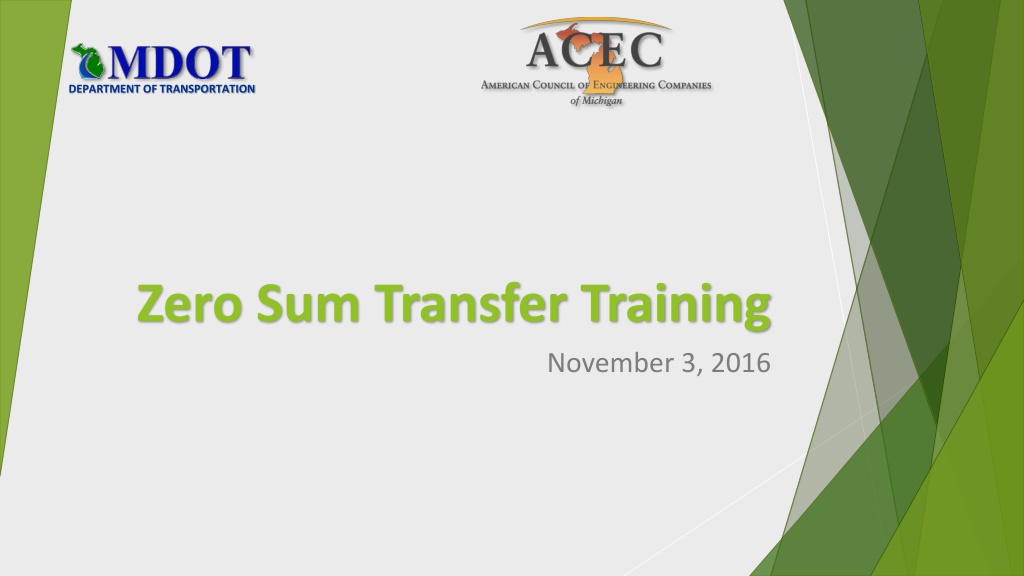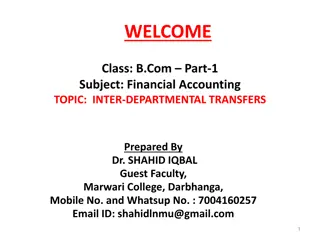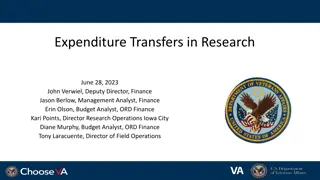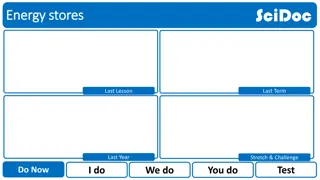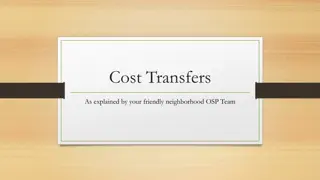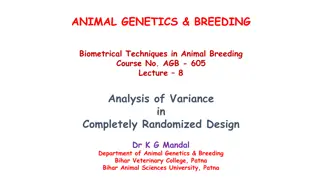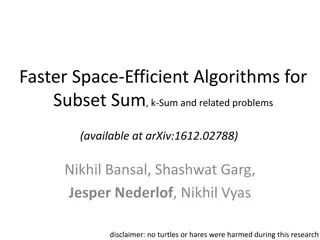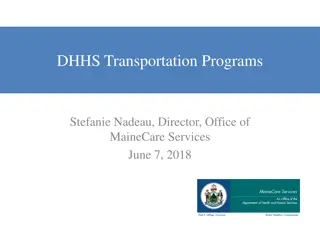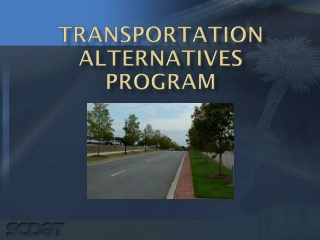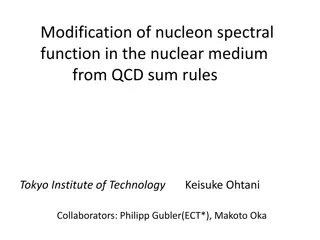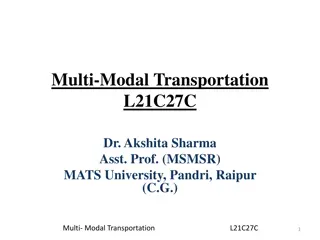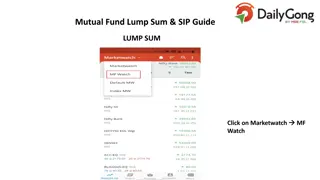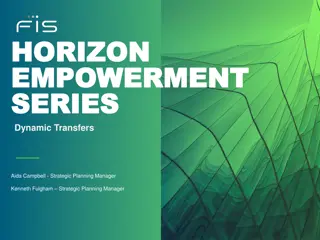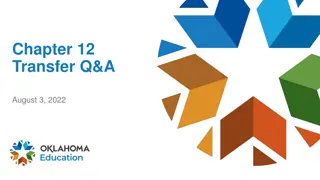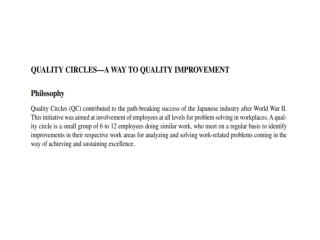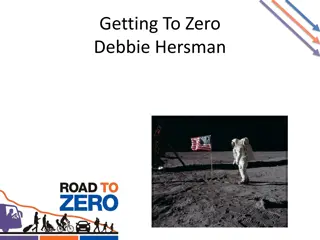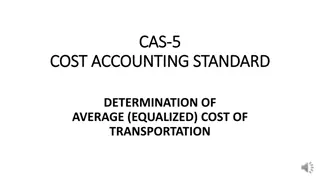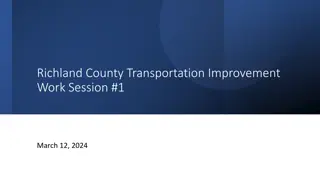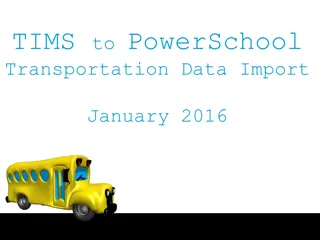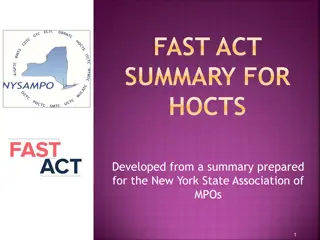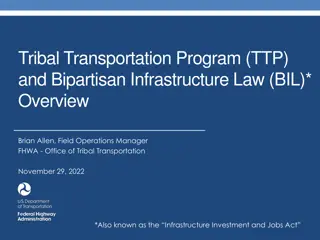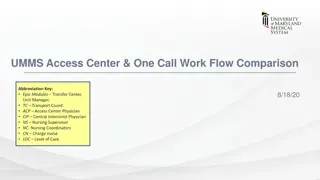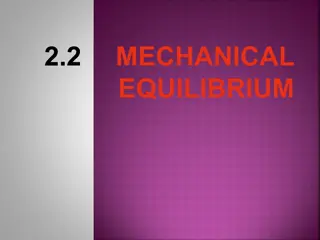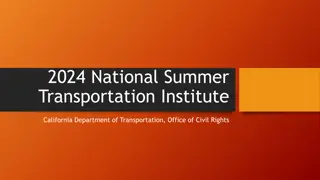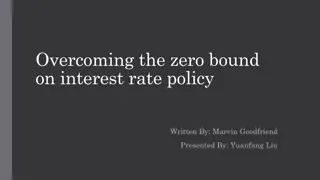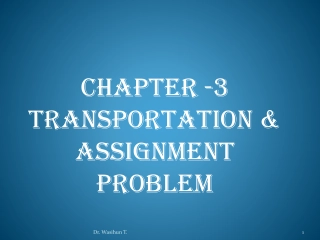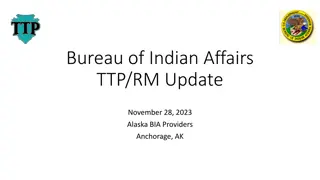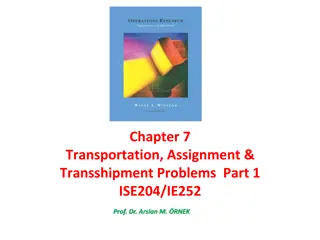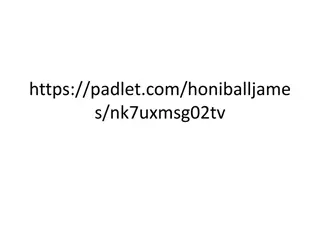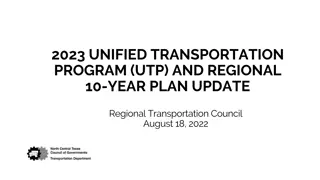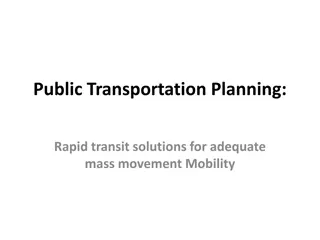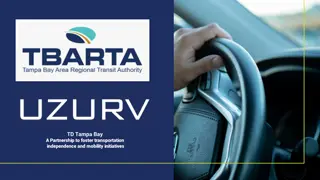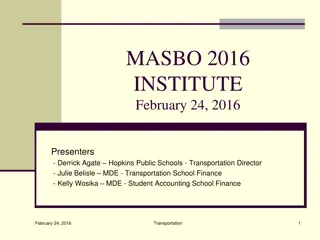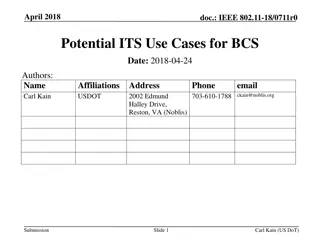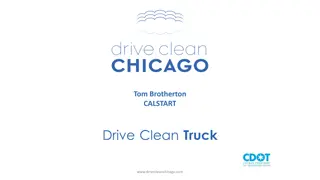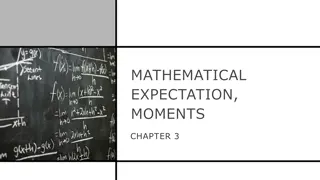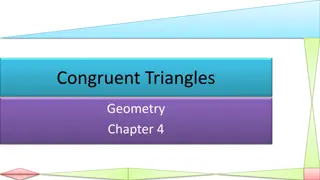Streamlining Zero Sum Transfers in Department of Transportation
Explanation of the simplified Zero Sum Transfer process at the Department of Transportation for moving contract costs throughout a project. Details changes in approval and payment procedures, including exceptions for different types of consultants and informal transfers.
Download Presentation

Please find below an Image/Link to download the presentation.
The content on the website is provided AS IS for your information and personal use only. It may not be sold, licensed, or shared on other websites without obtaining consent from the author. Download presentation by click this link. If you encounter any issues during the download, it is possible that the publisher has removed the file from their server.
E N D
Presentation Transcript
DEPARTMENT OF TRANSPORTATION Zero Sum Transfer Training November 3, 2016
Overview It is understood that contract costs often times need to be moved throughout the life of a project/contract, in order to perform the services as described in the original scope of work. After much discussion and several iterations, the Zero Sum Transfer process has been significantly simplified. The end result is a paradigm shift from what we ve done or discussed in the past.
Overview The Priced Proposal requirements remain unchanged and are used to derive total contract/authorization costs. This will be used by MDOT Project Managers to determine reasonableness of their project costs. Form 5101A-2 of the Priced Proposal has been revised and will be discussed later in this presentation. The Invoicing documents have also been revised and will be discussed later in this presentation.
When a Zero Sum Transfer is Not Needed After approval of the Priced Proposal, and award of the contract/authorization, MDOT will not hold consultants to the individual pots of money as identified in the priced proposal A pot is what is allocated to each firm working on a project. Firms can invoice in excess of the amount individually approved in the priced proposal by prime consultant and subconsultant(s) MDOT will Pay Invoices after Review by CSD & PM Approval regardless of the pots of money for each firm: Up to the contract/authorization maximum dollar amount Up to the contract/authorization maximum fixed fee dollar amount Up to the maximum dollar amount of a derived/encumbered Job Number(s)
When a Zero Sum Transfer is Not Needed These procedures apply only to prime and subconsultants that are paid by Actual Cost Plus Fixed Fee, Loaded Hourly Rate, and Unit Price*. *The unit price of each item may not be exceeded from the amount identified in the priced proposal, although total amounts per consultant may be exceeded. Exceptions will be made on a case by case basis. Does not include consultants that are being paid by Lump Sum or Milestone payments these will not be paid in excess of the dollar amounts documented in the priced proposal, by consultant. These are called Informal Transfers'
Informal Transfers Do not submit a priced proposal, revision or amendment, or a revised 5101S form. MDOT will not accept any documentation for informal transfers Subcontracts must be modified and executed for each informal transfer and retained in records. MDOT may request the submittal of subcontracts through the revised subcontracting process.
Formal Transfer A change to an Encumbered Job Number would require what is called a formal transfer, which is treated as a modification to the priced proposal documents. A formal transfer would require documentation and approval by the MDOT Project Manager. The required documents may include: Form 5109, Transfer Request Cover Sheet, signed by MDOT Project Manager Form 5101S, Intent to Subcontract (if applicable) Form 0182, DBE Consultant Participation (if applicable) 5101A-1 5101A-2
Formal Transfer As part of FHWA s approval, Form 5109 will require MDOT PM certification that any increases or decreases to job number s have been approved by FHWA prior to the transfer taking place. For Amendments, Revisions, and Formal Transfers after any Informal Transfer Do not include any informal transfer information on your 5101A-1 or 5101-2 when submitting for an amendment, revision, or formal transfer. Use either the original costs or those changed through a prior formal transfer, amendment, or a revision. If a formal transfer is needed, contact your CSD Contract Administrator.
Changes to the Priced Proposal Form 5101A-2 has been modified and truncated . The form now only documents the hours, fixed fee amounts, and the total contract amount for the prime consultant and each subconsultant. Labor costs, Overhead costs, FCCM costs and Direct Expenses were removed from this form. (See Next Slide for Sample A-2)
5100 A-2 Hours Fixed Fee Total Costs
Changes to Invoicing Currently: The current invoicing spreadsheet calculates overages whenever a firm (prime consultant or subconsultant) exceeds the amount of their individual pots of money as documented in the priced proposal. These overages are inconsistent with these revised guidelines and definitions, and have resulted in: The need to transfer funds in order to pay individual firms for work performed. Negative individual amounts within invoices, of which these negative amounts are reducing the total invoice amount, but still have a net positive amount. Invoices with a net negative amount.
Changes to Invoicing A true overage occurs when: The contract/authorization maximum dollar amount has been exceeded. The contract/authorization maximum fixed fee dollar amount has been exceeded. The dollar amount has been exceeded for a derived or encumbered job number.
Changes to Invoicing Short Term Resolution for Overages: Negative invoices will not be accepted. Invoices must always have a net positive or a zero balance. Consultants will need to adjust individual contract amounts in the budget worksheets [M1-M20 on the new format]or A1- (A1-A5 on the old format)] in order to perform informal transfers. If there is a true overage, as previously defined, an overage worksheet or other approved information for older invoices must be completed and submitted to MDOT with proper supporting documentation. This overage amount must be approved by the MDOT Project Manager The overage amount may be used in the future to offset MDOT audit adjustments.
Changes to Invoicing Future The invoicing format has been modified to: Eliminate the calculation of overages by an individual prime consultant and subconsultant when costs exceed the amount documented in the individual pots in the priced proposals. This will be consistent with our revised guidelines and definitions. Contract Amounts, Amount Invoiced to Date, and Remaining Balances are no longer visible. MDOT will not require consultants to change to the new invoicing format, for those contracts in which billing has already begun. MDOT may request consultants to change to the new invoicing format depending on the individual circumstances. Consultants may choose to change to the new invoicing format.
Changes to Invoicing Contract, Invoiced- to-date & Remaining amounts are only shown at the contract level (not per firm).
Informal Transfer Process: Communicate potential budget issues to the prime or MDOT PM as soon as possible. Once it is known that there will be budget remaining under the contract, discuss with the MDOT PM. Even though transfers are allowed by CSD, the MDOT PM has to approve the project charges. So, it is better to get approval before the transfer than to have your invoice denied later. Determine the amount of contract value and fixed fee (if any) that is proposed to be transferred with all parties involved. All transfers must result in a net zero change for the contract amount and fixed fee.
Informal Transfer Process: Once there is an understanding, the Prime firm must amend the subconsultant agreements to reflect the revised contract amount and fixed fee. Each affected subconsultant signs the subcontracts, the prime firm executes, and returns a copy. Do not send the subcontract document to MDOT, unless requested. In order to make the proper adjustments in the invoicing spreadsheets, each affected firm must modify the budget by adding or subtracting contract and fixed fee amounts in the M1-M20 or the A-1(A1-A5) worksheets. All original and formal amendments or revisions remain untouched.
Informal Transfer Process: Be sure to follow the invoicing instructions for changes in budgets before adjusting the invoicing file. Once the invoicing spreadsheets for all affected firms properly reflects the transfer, proceed with the normal invoicing process.
Overage Process: Once a true overage has been identified and is unavoidable, communicate it to the proper authority. For subconsultants, this would be the PM for the prime firm. For prime firms, this would be the MDOT PM. If an amendment or transfer is not possible proceed as follows: Invoices should never show billed amounts that exceed the contracted amounts and fixed fee for each firm. Prepare the invoice detail from the firm s accounting system. Add a line to discount the costs that are over budget. This could be done manually or using the accounting system.
Overage Process: Enter the resulting billable amounts in the JN worksheets on the invoicing spreadsheet. The remaining contract amount and fixed fee should be zero, not negative. Prepare the invoice as normal and attach an overage sheet. For newer invoice spreadsheets, complete the overage worksheet. This worksheet may need to be unhidden. Show the contract overage amounts for each JN. When saving the PDF file, the overage worksheet should automatically be included if an amount was entered.
Implementation Priced Proposal format dated 11/2016 must be used for all future priced proposal submitted to MDOT. Invoice format dated 11/2016 must be used in conjunction with the new Priced Proposal format.
CSD Reviews Due to this change in MDOT reviews with the implementation of Informal Transfers, CSD will be performing reviews of contracts at time of closeout to ensure: The 40/60% rule has been met (Prime/Sub) The 50/50% rule has been met (Tier I Sub/Tier II Sub) The DBE goal has been met
Things to Remember For project specific contracts/authorizations: If funds are moved from a firm that has completed its work under budget, the fixed fee must be paid in full to that firm. If the work has not been completed by a firm and the work needs to be moved to another firm for completion, the remaining fixed fee can be moved to the firm who completed the work, via invoicing. Neither Informal or Formal Transfers can increase a total contract/authorization dollar amount or maximum fixed fee dollar amount.
Things to Remember Only through an amendment or a revision can the total contract/authorization dollar amount or total contract/authorization maximum fixed fee dollar amount be increased and only with additional scope of services. If the amount of scope of a subcontract changes, the subcontracting document must be amended, however, the 5101S does not need to be amended. MDOT Project Manager s review all invoices
